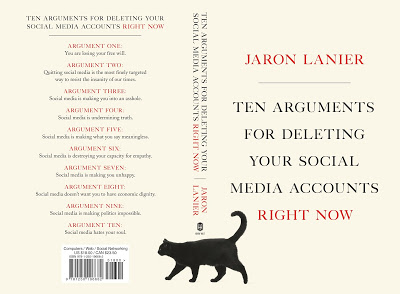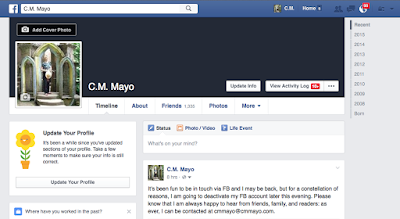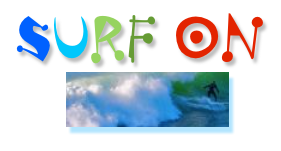
As of this year, the second Monday of the month is dedicated to my workshop students and anyone else interested in creative writing.
If you know who Jaron Lanier is you will understand why he, and probably only he, can get away with such a title for a commercially published book, a title that most people today, and that would include writers with books to promote, would consider hoot-out-loud humbug.
But perhaps they would not if they more fully understood the perverse and toxic nature of the machine Lanier terms BUMMER.
BUMMER = Behaviors of Users Modified, and Made Into an Empire for Rent
Writes Lanier:
“BUMMER is a machine, a statistical machine that lives in the computing clouds. To review, phenomena that are statistical and fuzzy are nevertheless real.”
And more:
“The more specifically we can draw a line around a problem, the more solvable that problem becomes. Here I have put forward a hypothesis that our problem is not the Internet, smartphones, smart speakers, or the art of algorithms. Instead, the problem that has made the world so dark and crazy lately is the BUMMER machine, and the core of the BUMMER machine is not a technology, exactly, but a style of business plan that spews out perverse incentives and corrupts people.”
BUMMER sounds like science fiction. But alas, as Lanier explains, the business plan behind social media, and the use of proprietary algorithms to hook users into addiction and subtly distort and shape interactions among users, is both real and seriously icky. You’ve probably read or heard something about FaceBook’s shenanigans, but in Lanier’s Ten Arguments you’re getting a far broader, more detailed analysis and argument, in a wierdly charming package, and not from some random TED pundit, but from one of the fathers of the industrial-cultural complex now known as Silicon Valley.
As Jaron Lanier states in his acknowledgements, the title Ten Arguments For Deleting Your Social Media Accounts Right Now is inspired by Jerry Mander’s Four Arguments for the Elimination of Television. I, too, consider Mander’s Four Arguments for the Elimination of Television a personal inspiration and a masterpiece.
Call me a pessimist: I doubt that Lanier’s book will have any more influence on the general public’s social media habits than did Mander’s on television watching, which came out in the late 1970s. But perhaps such works may assist you in marshaling your attentional power for your creative endeavors, as they did for me, and for this reason I enthusiastically recommend them to you, dear writerly readers.
Carpe diem.
BUT BY THE WAY…
I have not deleted my social media accounts. What I have done is deactivate FaceBook (back in 2015), abandon Twitter (totally, 2021) and now only very rarely participate on LinkedIn and academia.edu, mainly to announce a publication. While I agree with Lanier’s argument that social media is perverse and and toxic, and I sincerely wish that I had never signed up for FB and Twitter in the first place, the fact is, I did, and because of that existing online record and username, I am not ready to hit the delete button. Moreover, I am still digesting some parts of his argument (in particular, I do not accept his hypothesis that the problem is merely what he terms BUMMER).
And, yes, I know, this blog, on the Google platform, blogger, belongs to BUMMER. A better and paid platform is on my to-do list. [UPDATE January 2019: Here at last this blog is on self-hosted WordPress at www.madam-mayo.com]
As for using Google search– definitively BUMMER– I switched to Duckduckgo as my go-to search engine a good while ago.
What’s the specific strategy that would be right for you? I would not presume to say.
But what is clear— and we don’t need Mr Lanier to inform us on this simple point— is that if you want to write anything substantive, and you don’t have the abracadabradocity to summon up more than 24 hours in each day, social media can be a lethal time-suck. The years will scroll by, as it were… and funny how that is, though you Tweet #amwriting often enough, you never wrote what you planned to write…
What’s more, the visibility you can achieve with social media, and the sense of “community,” albeit intermediated by proprietary algorithms of a corportation, are Faustian bargains: you will pay in the end, and on many levels.
P.S. For those who have the inclination and/or sufficient cootie-proofing to handle esoterica, I can also recommend philosopher Jeremy Naydler’s splendidly researched and elegantly argued In the Shadow of the Machine: The Prehistory of the Computer and the Evolution of Consciousness— also just published. You might find it worthwhile to keep in mind, if you read In the Shadow of the Machine, that in his Ten Arguments Jaron Lanier mentions (oh so briefly, blink and you’ll miss it) Waldorf schools. (More about that connection here.)

Notes on Stephen L. Talbott’s The Future Does Not Compute
Great Power in One: Miss Charles Emily Wilson
Find out more about C.M. Mayo’s books, shorter works, podcasts, and more at www.cmmayo.com.




